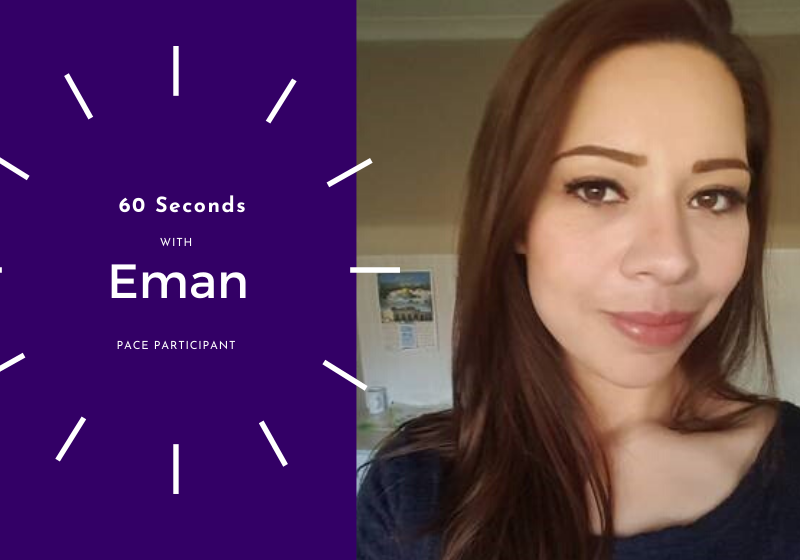
60 Seconds with Eman Al-Dasuqi
What is the best part of your day?
I’m not a morning person but what makes me get up is a coffee. Even if I had a billion dollar job, the only thing that would get me out of bed is having that coffee. That’s my way of saying “Good morning, Eman.”
What’s your favourite word?
Nour. It’s an Arabic word and it means light. Personally, I think that light symbolises direction, happiness, a prayer. It always means that something good is going to happen! Like the moon in the middle of the night or a light house in the middle of the ocean. It’s something telling you that you are not alone. For me, the word in essence means to be content.
What’s the biggest challenge you’ve faced as a woman from an immigrant or refugee background?
When I migrated to Australia 11 years ago, there were so many labels that I had to deal with. I got married just before coming here, and suddenly I was a wife, and then also a migrant. Then there were words like Arab and Muslim. And questions like, “why aren’t you covering your hair if you are Muslim?” And you know, I am just Eman, why did they have to label me? I was all of the sudden something exotic and expectations came attached to these labels. In every interaction I had to respond to questions like, “oh you have an accent, where are you from?” As immigrant, Muslim and Arab, I am also expected to have a certain skin colour and to behave in a certain way.
As time went on, I got my citizenship and am now an Aussie. I am a voice actor and I can also sound Aussie if I wanted to. But I used to work at a deli and a regular customer once said, “Eman you are not sounding as exotic as you used to be. You are sounding more Aussie, I don’t like it.” And I was like, Jane, let me live girl. Sorry to break it to you but I’m not your stereotype!
Why did you join PACE and how has it made an impact on your life?
I thought the PACE program was a great opportunity to connect with women who from all walks of life, including those who have recently arrived to Australia. At that time I was experiencing a career change, and I wanted to learn how to be part of solutions instead of reporting on issues. I needed these ladies. I enjoyed listening to their conversations, learning from the materials and making connections.
MCWH was also so thoughtful. You know how wonderful and what a big change it was to have childcare? It made a huge difference. I had my child safely in a room with professionals so that I could focus and learn.
I really hope for PACE to continue. It wasn’t only a five-week program, but a new way of thinking which you gave to these women.
Finish this sentence: “We need women’s leadership because….”
“Women are motivated by challenges, are excellent multitaskers, and are naturally nurturing, which makes us excellent leaders.”
